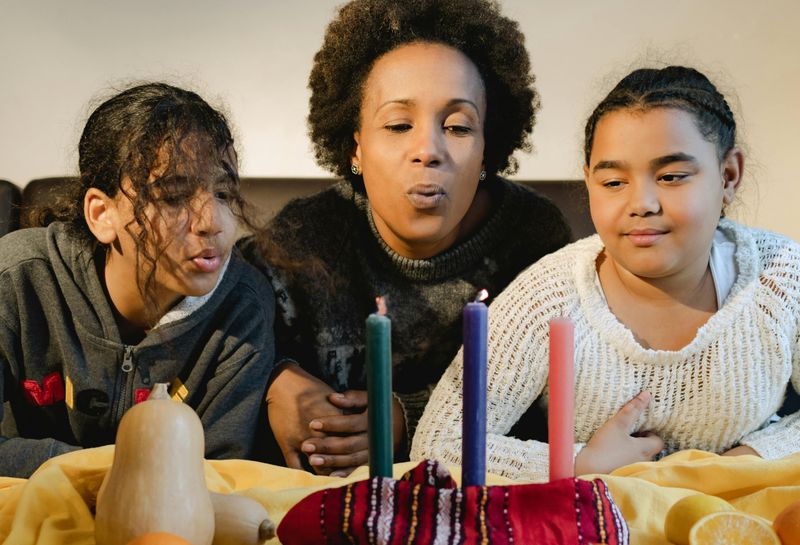12 Things Happy Families Have in Common

Every family is unique, but happy families often share certain traits that help them thrive together. Understanding what makes these families successful can inspire positive changes in your own home. Whether it’s how they communicate or the traditions they create, these common qualities build stronger bonds and lasting joy.
1. Open and Honest Communication

Communication forms the foundation of every thriving household. When family members feel safe sharing their thoughts and feelings without judgment, trust naturally develops. Active listening matters just as much as speaking up.
Happy families create space for everyone’s voice to be heard. Parents model respectful dialogue, and children learn to express themselves clearly. Even difficult conversations become easier when honesty is valued.
Regular check-ins help prevent misunderstandings from growing into bigger problems. Whether it’s a casual chat over breakfast or a planned family meeting, keeping communication channels open strengthens relationships. Words have power to heal or hurt, so choosing them wisely builds connection.
2. Quality Time Together

Busy schedules can pull families in different directions, but making time for togetherness keeps bonds strong. Shared activities don’t need to be expensive or elaborate to be meaningful. Simple moments like cooking dinner together or taking evening walks create lasting memories.
Did you know? Research shows families who eat together at least four times weekly have stronger relationships. Game nights, movie marathons, or weekend adventures give everyone something to look forward to.
The key is being fully present during these moments. Put away phones and other distractions to truly connect. Quality beats quantity when it comes to family time, so even short periods of focused attention make a real difference.
3. Established Traditions and Rituals

Traditions anchor families through life’s ups and downs. Whether it’s pancakes every Saturday morning or an annual camping trip, these rituals create anticipation and belonging. Children especially thrive on predictable patterns that make them feel secure.
Some traditions get passed down through generations, while others start spontaneously and stick around. Holiday celebrations, birthday customs, or even silly weekly routines become the stories families tell for years. These shared experiences weave the fabric of family identity.
Creating new traditions keeps things fresh and exciting. Let everyone contribute ideas to make rituals feel inclusive and special for all ages.
4. Expressions of Affection and Appreciation

Love grows stronger when expressed regularly through both words and actions. A simple hug, a heartfelt compliment, or a note of encouragement can brighten someone’s entire day. Happy families don’t take each other for granted.
Saying thank you for everyday contributions teaches gratitude and recognition. Celebrating small wins alongside big achievements shows that effort matters. Physical affection like hugs and high-fives releases feel-good hormones that reduce stress.
Different family members may prefer different love languages, so pay attention to what makes each person feel valued. Some crave verbal praise while others appreciate acts of service or quality time. Adapting your approach shows genuine care.
5. Support for Individual Goals and Dreams

Every family member deserves cheerleaders for their personal ambitions. When parents encourage children’s interests and siblings celebrate each other’s successes, everyone flourishes. Supporting individual growth strengthens the entire family unit rather than weakening it.
Listening to someone’s aspirations without immediately offering criticism creates safety for dreaming big. Practical help matters too—driving to practice, helping with projects, or simply asking about progress shows investment. Failures become learning opportunities when met with compassion instead of disappointment.
Balancing family needs with individual pursuits requires flexibility and communication. Finding this equilibrium teaches valuable life skills about compromise and mutual respect.
6. Patience and Forgiveness

Nobody’s perfect, and happy families understand this deeply. Mistakes happen, tempers flare, and words get said in the heat of the moment. What separates thriving families is their willingness to forgive and move forward together.
Holding grudges poisons relationships slowly over time. Teaching children to apologize sincerely and accept apologies graciously builds emotional intelligence. Parents who model admitting their own mistakes show that everyone deserves second chances.
Patience during challenging phases—whether it’s terrible twos or teenage rebellion—prevents permanent damage to relationships. Remember that difficult behaviors are often temporary, but how we respond to them creates lasting impressions. Grace goes a long way.
7. Shared Responsibilities

Teamwork makes the dream work, especially at home! When everyone pitches in with household tasks, no single person feels overwhelmed or resentful. Children who contribute learn valuable life skills and develop a sense of capability.
Age-appropriate chores teach responsibility while building confidence. Even young kids can help set the table or sort laundry. As children grow, their contributions increase, preparing them for independence.
Fair doesn’t always mean equal—distributing tasks based on abilities and schedules works better than rigid rules. Regular family discussions about who does what prevent assumptions and frustration. Working together toward common goals creates unity and teaches the importance of contribution.
8. A Good Sense of Humor

Laughter truly is the best medicine for family stress! Finding humor in everyday situations lightens the mood and helps everyone cope with challenges more easily. Happy families don’t take themselves too seriously all the time.
Inside jokes become treasured bonds that only your family understands. Playful teasing, when done with love and respect, creates warmth and connection. Being able to laugh at mistakes instead of dwelling on them builds resilience.
Watching funny movies together, sharing silly stories from the day, or engaging in playful activities keeps the atmosphere positive. Joy becomes contagious when humor is welcomed. Even during tough times, finding moments to smile together provides much-needed relief.
9. Adaptability to Change

Life constantly throws curveballs, and flexible families handle them best. Moving to a new city, changing schools, welcoming a new sibling, or facing unexpected challenges all require adjustment. Families who embrace change rather than resist it experience less stress.
Teaching children that change can bring opportunities helps them develop optimism. Parents who remain calm during transitions provide stability even when circumstances shift. Discussing changes openly and addressing concerns prevents anxiety from building.
Maintaining some routines during times of change offers comfort and continuity. Acknowledging that adjustment takes time shows compassion for everyone’s feelings. Families grow stronger by navigating life’s twists and turns together as a united team.
10. Community Service and Giving Back

Looking beyond your own four walls enriches family life in surprising ways. Volunteering together at food banks, participating in neighborhood clean-ups, or helping elderly neighbors teaches empathy and gratitude. Children learn that they can make a positive difference in the world.
Serving others provides perspective on your own blessings and challenges. Families who give back tend to complain less about minor inconveniences. Working toward a common goal outside the home strengthens internal bonds too.
These experiences spark meaningful conversations about values, fairness, and compassion. Whether it’s a one-time project or regular commitment, community involvement builds character and purpose for the entire family.
11. Respect for Boundaries

Everyone needs personal space, even within close families. Respecting privacy and individual boundaries prevents resentment and promotes healthy independence. Knocking before entering rooms, honoring alone time, and not reading private messages shows basic respect.
As children mature, their need for autonomy increases naturally. Parents who recognize this while maintaining appropriate oversight find better balance than those who either hover constantly or disengage completely. Clear expectations about boundaries help everyone feel secure.
Physical boundaries matter too—understanding that not everyone enjoys constant physical affection prevents discomfort. Teaching children to respect others’ space and belongings prepares them for respectful relationships outside the family. Boundaries actually strengthen connections rather than weaken them.
12. Consistent Values and Principles

Shared values act as a family compass, guiding decisions and behaviors. Whether it’s honesty, kindness, hard work, or faith, clearly defined principles give everyone a sense of direction. Children feel more secure when expectations remain consistent.
Living your values daily matters more than just talking about them. When parents demonstrate integrity, generosity, and respect, children naturally absorb these lessons. Hypocrisy erodes trust quickly, so aligning actions with words is essential.
Families don’t need to agree on everything, but core values provide common ground. Regular discussions about what matters most help everyone stay connected to these guiding principles. Strong values create a family legacy that extends beyond generations.

Comments
Loading…